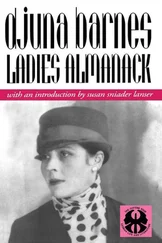As the altar of a church would present but a barren stylization but for the uncalculated offerings of the confused and humble; as the corsage of a woman is made suddenly martial and sorrowful by the rose thrust among the more decorous blooms by the hand of a lover suffering the violence of the overlapping of the permission to bestow a last embrace, and its withdrawal: making a vanishing and infinitesimal bull’s eye of that which had a moment before been a buoyant and showy bosom, by dragging time out of his bowels (for a lover knows two times, that which he is given, and that which he must make)—so Felix was astonished to find that the most touching flowers laid on the altar he had raised to his imagination were placed there by the people of the underworld, and that the reddest was to be the rose of the doctor.
After a long silence in which the doctor had ordered and consumed a Chambéry fraise and the Baron a coffee, the doctor remarked that the Jew and the Irish, the one moving upward and the other down, often meet, spade to spade in the same acre.
‘The Irish may be as common as whale-shit—excuse me—on the bottom of the ocean—forgive me-—but they do have imagination and’, he added, ‘creative misery, which comes from being smacked down by the devil, and lifted up again by the angels. Misericordioso! Save me, Mother Mary, and never mind the other fellow! But the Jew, what is he at his best? Never anything higher than a meddler —pardon my wet glove—a supreme and marvellous meddler often, but a meddler nevertheless.’ He bowed slightly from the hips. ‘All right, Jews meddle and we lie, that’s the difference, the fine difference. We say someone is pretty for instance, whereas, if the truth were known, they are probably as ugly as Smith going backward, but by our lie we have made that very party powerful, such is the power of the charlatan, the great strong! They drop on anything at any moment, and that sort of thing makes the mystic in the end, and’, he added, ‘it makes the great doctor. The only people who really know anything about medical science are the nurses, and they never tell, they’d get slapped if they did. But the great doctor, he’s a divine idiot and a wise man. He closes one eye, the eye that he studied with, and putting his fingers on the arteries of the body says: “God, whose roadway this is, has given me permission to travel on it also,” which, heaven help the patient, is true; in this manner he comes on great cures, and sometimes upon that road is disconcerted by that Little Man.’ The doctor ordered another Chambéry, and asked the Baron what he would have; being told that he wished nothing for the moment, the doctor added: ‘No man needs curing of his individual sickness, his universal malady is what he should look to.’
The Baron remarked that this sounded like dogma.
The doctor grinned. ‘Does it? Well, when you see that Little Man you know you will be shouldered from the path.’
‘I also know this,’ he went on: ‘One cup poured into another makes different water; tears shed by one eye would blind if wept into another’s eye. The breast we strike in joy is not the breast we strike in pain; any man’s smile would be consternation on another’s mouth. Rear up eternal river, here comes grief! Man has no foothold that is not also a bargain. So be it! Laughing I came into Pacific Street, and laughing I’m going out of it; laughter is the pauper’s money. I like paupers and bums,’ he added, ‘because they are impersonal with misery, but me—me, I’m taken most and chiefly for a vexatious bastard and gum on the bow, the wax that clots the gall or middle blood of man known at the heart or Bundle of Hiss. May my dilator burst and my speculum rust, may panic seize my index finger before I point out my man.’
His hands (which he always carried like a dog who is walking on his hind legs) seemed to be holding his attention, then he said, raising his large melancholy eyes with the bright twinkle that often came into them: ‘Why is it that whenever I hear music I think I’m a bride?’
‘Neurasthenia,’ said Felix.
He shook his head. ‘No, I’m not neurasthenic, I haven’t that much respect for people—the basis, by the way, of all neurasthenia.’
‘Impatience.’
The doctor nodded. ‘The Irish are impatient for eternity, they lie to hurry it up, and they maintain their balance by the dexterity of God, God and the Father.’
‘In 1685,’ the Baron said, with dry humour, ‘the Turks brought coffee into Vienna, and from that day Vienna, like a woman, had one impatience, something she liked. You know, of course, that Pitt the younger was refused alliance because he was foolish enough to proffer tea; Austria and tea could never go together. All cities have a particular and special beverage suited to them. As for God and the Father—in Austria they were the Emperor.’ The doctor looked up. The chasseur of the Hotel Récamier (whom he knew far too well) was approaching them at a run.
‘Eh! ‘ said the doctor, who always expected anything at any hour, ‘Now what?’ The boy, standing before him in a red and black striped vest and flapping soiled apron, exclaimed in Midi French that a lady in twenty-nine had fainted and could not be brought out of it.
The doctor got up slowly, sighing. ‘Pay’, he said to Felix, ‘and follow me.’ None of the doctor’s methods being orthodox, Felix was not surprised at the invitation, but did as he was told.
On the second landing of the hotel (it was one of those middle-class hostelries which can be found in almost any corner of Paris, neither good nor bad, but so typical that it might have been moved every night and not have been out of place) a door was standing open, exposing a red carpeted floor, and at the further end two narrow windows overlooking the square.
On a bed, surrounded by a confusion of potted plants, exotic palms and cut flowers, faintly over-sung by the notes of unseen birds, which seemed to have been forgotten—left without the usual silencing cover, which, like cloaks on funeral urns, are cast over their cages at night by good housewives)—half flung off the support of the cushions from which, in a moment of threatened consciousness she had turned her head, lay the young woman, heavy and dishevelled. Her legs, in white flannel trousers, were spread as in a dance, the thick lacquered pumps looking too lively for the arrested step. Her hands, long and beautiful, lay on either side of her face.
The perfume that her body exhaled was of the quality of that earth-flesh, fungi, which smells of captured dampness and yet is so dry, overcast with the odour of oil of amber, which is an inner malady of the sea, making her seem as if she had invaded a sleep incautious and entire. Her flesh was the texture of plant life, and beneath it one sensed a frame, broad, porous and sleep-worn, as if sleep were a decay fishing her beneath the visible surface. About her head there was an effulgence as of phosphorus glowing about the circumference of a body of water—as if her life lay through her in ungainly luminous deteriorations—the troubling structure of the born somnambule, who lives in two worlds—meet of child and desperado.
Like a painting by the douanier Rousseau, she seemed to lie in a jungle trapped in a drawing room (in the apprehension of which the walls have made their escape), thrown in among the carnivorous flowers as their ration; the set, the property of an unseen dompteur , half lord, half promoter, over which one expects to hear the strains of an orchestra of wood-wind render a serenade which will popularize the wilderness.
Felix, out of delicacy, stepped behind the palms. The doctor with professional roughness, brought to a pitch by his eternal fear of meeting with the Law (he was not a licensed practitioner) said: ‘Slap her wrists, for Christ’s sake. Where in hell is the water pitcher!’
Читать дальше












